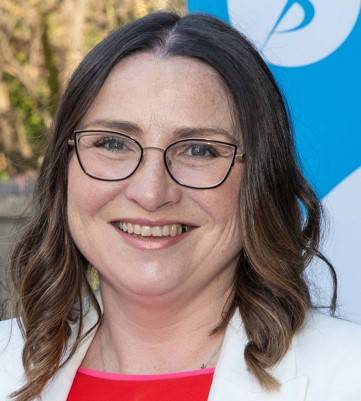Urgent action needed to tackle the 'crisis' facing Ireland's physiotherapy profession, the ISCP says
The recruitment and retention of physiotherapists in Ireland has reached ‘crisis level’, according to Marie Ó Mír, the Irish Society of Chartered Physiotherapists’ (ISCP) chief executive.
‘Recruitment and retention of physiotherapists is at crisis levels nationally, resulting in exponentially growing waiting lists for patients – particularly for children’s disabilities where wait times are now in years rather than weeks.’
Dr Ó Mír made her comments in response to this week’s announcement on Irish government plans to expand the number of undergraduate places available in physiotherapy and other healthcare professions. She said the Department of Further and Higher Education, Research, Innovation and Science announcement ‘rings hollow for the physiotherapy profession’ and described the plans as ‘dismal, disappointing and totally inadequate’.
The ISCP, which represents more than 3,000 chartered physiotherapists in Ireland, is concerned that just 26 extra places for physiotherapy students will be freed up in the coming year – with 20 of them being offered by the University of Ulster (which is based in Northern Ireland).

Physios being lured overseas
Dr Ó Mír said that physiotherapy had the largest workforce among the various therapies in the Health Service Executive (HSE). ‘Unfortunately, at the minute, numerous positions remain unfilled across both public and private hospitals, as well as in private practices.
‘We are unable to accurately quantify the exact number of vacancies that are unfilled, as to date, the HSE has declined to disclose this information to the ISCP. This workforce shortage is compounded by the fact that the ESRI [ Economic and Social Research Institute] has forecast a 32 per cent surge in the demand for healthcare professionals across the board.'
Dr Ó Mír pointed out that 59,366 people were waiting for a physiotherapy appointment around this time last year. ‘In June of this year we had 17,157 children waiting for an assessment of need, of which physiotherapy is a crucial component. This is all occurring against a background where the quality of Irish graduates is highly recognised internationally, and they are being offered generous monetary incentives to move and work abroad.’
Recruitment and retention of physiotherapists is at crisis levels nationally, resulting in exponentially growing waiting lists for patients [Marie Ó Mír]
Study placements a problem area
The recently-appointed ISCP chief executive continued: ‘The introduction of new student places in and of itself places the current health system under pressure. Trainee physiotherapists must complete 1,000 hours of supervised clinical placement before they can graduate. Since the pandemic, there has been a serious issue in finding enough placements for current students as there are not sufficient staffing numbers to supervise students.'
Several steps must be taken urgently by ministers, Dr Ó Mír added
- undertake workforce planning to show many physiotherapists are needed and plan student numbers appropriately
- engage with the ISCP and universities on facilitating increased numbers of students by recruiting additional clinical tutors to supervise students
- support physiotherapy students with accommodation provision and rent supplements (some students are apparently deferring places as they are unable to find rental accommodation)
- the government as whole must make a ‘meaningful commitment’ to address the cost of living crisis
Share it with














